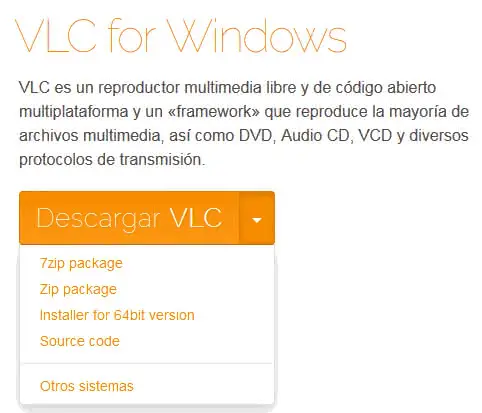It seems that the new multimedia file standards are released quite frequently and it is very common to find a video or a song that does not play on our computer. The solution to this problem is simple and then we show
how to play videos without installing codecs on Windows or Linux
.

Most users know the media player included by default in their operating system, for example the Media Player in the case of Windows. These players included by default have their advantages and disadvantages and
usually rely on codecs to play certain video or audio formats
.
What are codecs?
The codecs at the level of home computing could be defined as programs or libraries capable of decoding a specific data format.
Its use is widespread in the multimedia field to visualize different formats of video, image or audio.
There are many codecs and many of them have specific packages for each operating system. When we install these codecs, they are usually installed so that other players or programs can access and use them.
The installation of codecs is usually a simple process, but sometimes it is tedious or can end up giving us problems, so we propose this tutorial.
How to play videos without installing codecs on Windows or Linux.
The easiest way to do without codecs is to use the VLC media player.
This player has years of development and evolution behind it that have made it one of the most versatile media players.
Among its advantages, it stands out that it is a free and open source project, as well as a multiplatform. VLC belongs to the
VideoLAN
project, a non-profit organization.
This player supports a large number of multimedia formats, in addition to the latest technologies such as hardware acceleration.
VLC does not need codecs installed in the operating system, because the program itself includes its own codecs to correctly decode many audio and video formats.
How to install VLC on Windows or Linux.
The installation in Windows of VLC is as simple as downloading the installer from its
official website
and following the instructions on the screen. There is also the option to download the portable version
(identified as "7zip package" or "Zip package" )
that does not require installation.

In Linux, the VLC package is usually in the vast majority of repositories of the different distributions and in Ubuntu we could install it with the
sudo apt-get install vlc
command.